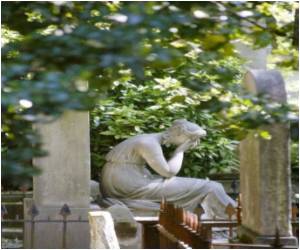
The 62-year-old is regularly invited to speak at economic conferences across the continent and the International Monetary Fund asked him to fly to Madrid in April to give his input on the state of the Spanish economy.
He is also among those advising the new president of the regional government of Catalonia, Artur Mas, whose moderate nationalist party, the Convergence and Union, won elections in the northeastern Spanish region last month.
"I always thought it would lead somewhere, where it would lead I didn't know," he said as he sat by the fireplace at the stone house he shares with two friends in the village of Les Escuales near Figueres in northeastern Spain.
His core argument is that European nations will struggle to pay for their generous pension and health services as their populations age and that the 17-nation eurozone lacks the institutional and fiscal tools to ensure the economies of member states converge as is needed for monetary union to work.
"The two problems are now coinciding and financial markets are more aware of this than before," said Hugh, who has a masters degree in communication technologies from Manchester University and who studied at the London School of Economics but has earned a living mainly by giving private English lessons.
Advertisement
"Intellectually I feel vindicated," said Hugh, who launched the blog called "A Fistful of Euros" in September 2003 to share his ideas with others.
Advertisement
To relieve pressure on the euro, the European Central Bank should buy government debt on a greater scale, the way the US Federal Reserve is doing, and weaker countries should be allowed to pool their credit standing with the strong through the creation of joint eurozone bonds, he added.
Hugh said another way the debt crisis could unfold is that Germany, Europe's largest economy, could decide to leave the euro area, which would push down the value of the single currency and boost the economic competitiveness of the weaker nations that stayed behind.
Born in Liverpool, he moved to Catalonia in 1990 in search of a milder climate, settling in Barcelona where he could find enough work teaching English to support himself as he pursued his passion for reading.
His eclectic intellectual interests, from philosophy to sociology to science, prevented him from completing his degree at the London School of Economics.
He says one of his professors at Manchester University once described him as "thief" for accepting a doctoral grant while spending his time reading the books and attending the courses that interested him.
Hugh still teaches 10 students in Barcelona, where he spends several days each week. As he does not own a car, he makes the roughly 120-kilometre trip from his home in Les Escuales to the Catalan capital by bus and train.
He said running and updating the blog helps him to order his thoughts. The blog is read by 5,000-10,000 people, Hugh estimated.
The Facebook page he opened in July 2009, which he updates more regularly with short comments on breaking economic news, provides him with a forum to debate his ideas with other economic thinkers, he added.
His page already has 5,000 "friends", the maximum allowed, and over 2,500 users of the social networking site have clicked that they "like" his page, allowing them to follow his posts.
Hugh said he has turned down offers from financial analysts to provide exclusive research because he does not want his views monopolised by any one entity.
But he recently accepted a post on the board of regional savings bank Catalunya Caixa and is a frequent guest on Catalan television shows.
"During all the years during the boom when everyone was doing well, I wasn't doing anything especial. Now I am," he said.
Source-AFP








